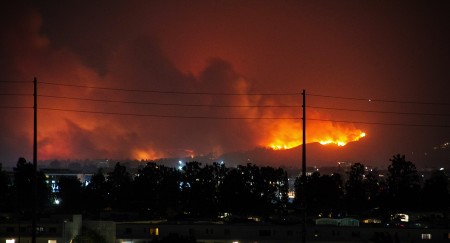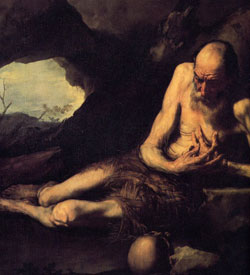 Dear readers, Catholic Online was de-platformed by Shopify for our pro-life beliefs. They shut down our Catholic Online, Catholic Online School, Prayer Candles, and Catholic Online Learning Resources—essential faith tools serving over 1.4 million students and millions of families worldwide. Our founders, now in their 70's, just gave their entire life savings to protect this mission. But fewer than 2% of readers donate. If everyone gave just $5, the cost of a coffee, we could rebuild stronger and keep Catholic education free for all. Stand with us in faith. Thank you. Help Now >
Dear readers, Catholic Online was de-platformed by Shopify for our pro-life beliefs. They shut down our Catholic Online, Catholic Online School, Prayer Candles, and Catholic Online Learning Resources—essential faith tools serving over 1.4 million students and millions of families worldwide. Our founders, now in their 70's, just gave their entire life savings to protect this mission. But fewer than 2% of readers donate. If everyone gave just $5, the cost of a coffee, we could rebuild stronger and keep Catholic education free for all. Stand with us in faith. Thank you. Help Now >
We Should Throw a Lifeline to Struggling Anglicans
FREE Catholic Classes
'The Gospel demands that we welcome refugees from the Anglican crisis', says Damian Thompson.
Highlights
The Catholic Herald (UK) (www.catholicherald.co.uk/)
8/7/2009 (1 decade ago)
Published in Europe
LONDON (UK Catholic Herald) - A few months ago I witnessed a little miracle: an Anglican friend of mine was received into the Church. It was a miracle because this particular friend had been adamant that he would not become a "Roman", despite his love of traditional Catholic liturgy. There were many factors in his change of heart, but two words explain why he suddenly took the plunge: Pope Benedict.
At the centre of my friend's Christianity is public worship, and (so far as I can judge from many conversations with him) the main reason he did not leave the Church of England is that he could not accept the claims of a Church which did not get its worship right. His objection was not to Vatican II, but to a casual approach to the celebration of Mass that made it harder to believe in the unique universal status of the Roman Church.
And then along came Benedict XVI. I don't want to imply that Pope John Paul II did not care about worship - he regularly denounced liturgical abuses - but it did seem to observers inside and outside the Church that nothing much ever happened. In contrast, the present Holy Father has made clear that bishops and priests must restore solemnity to the liturgy as a matter of urgency. And, although the fine print of Summorum Pontificum is still ignored by bishops all over the world, there is no doubt that Pope Benedict has liberated the older form of the Roman Rite.
Is it a coincidence that the Benedictine reform of the liturgy is occurring just as the Anglican Communion falls into irrevocable schism? It wouldn't surprise me if Joseph Ratzinger, an old friend of conservative Anglicans, saw both processes as providential. His liturgical renewal could perhaps be seen as a spring-cleaning before visitors arrive. For, make no mistake about it, Pope Benedict XVI wants Anglicans to "come over" in large numbers. Such conversions represent the fruit, rather than the failure, of the ecumenical project (though one should add that the Pope also wishes to deepen solidarity with non-Catholics who have no plans to covert).
But what form should the reception of former Anglicans take? There is no easy answer to this question, just as there was no easy way to incorporate Eastern Orthodox dissidents into the Roman communion at various points in the Church's history (though it happened). Whenever Catholic-minded members of other Churches or denominations break away from the mainstream, the Vatican finds itself tangled up in arguments: about Holy Orders, corporate versus individual reception, married priests and Rites of worship. It can take many decades, if not centuries, for things to settle down. But the long-term benefits can be remarkable, as the recent foundation of arguably the world's most exciting Catholic university by the Eastern-Rite Church in Ukraine demonstrates.
The main thing is not to miss a heaven-sent opportunity. It's widely believed, among conservative Catholics and Anglicans, that the Church in England and Wales did not do enough to welcome refugees from the Church of England after the vote for women priests in 1992. On reflection, though, perhaps the time was not right. The Bishops of England and Wales were not well disposed to "misogynist" traditionalists, as they were unfairly characterised; the standard of English Catholic liturgy was at an all-time low; and Anglo-Catholicism, though divided and unhappy, still had the stomach for a fight.
Now Anglo-Catholicism has fallen apart. Liberal High Churchmen have quietly abandoned their opposition to women priests, ditching their principles but keeping their chasubles; they include most of the practising gay clergy who were such a stumbling block in the 1990s. Conservative Anglo-Catholics, meanwhile, no longer identify with a C of E that treats them like batty aunts to be locked in the attic when the first woman bishop arrives, as she will soon. The question is how best to escape.
As for our Catholic bishops, there is now more sympathy for the Anglo-Catholic dilemma. The appointment of Archbishop Vincent Nichols to Westminster is significant; for, although he has never been a "traditionalist", nor has he ever been at the heart of the dialogue between liberal Catholics and liberal Anglicans that has wasted so much time since the ordination of women priests made reunion impossible. As a young Westminster bishop, he unobtrusively cleared the path to Rome of at least one Anglican priest; there is no reason to think that he will not do the same again.
But the crucial change is that the present Pope, unlike his predecessor, is an admirer of the conservative Anglo-Catholic tradition - and open to the idea that doctrinally orthodox Anglicans should convert together, bringing with them spiritual gifts. He is aware that the practical obstacles to such a move (or series of moves) are immense. But he will not be dissuaded by a Catholic ecumenical lobby that, even now, pays court to liberal Anglicans.
Hence the emergence of the Congregation for the Doctrine of the Faith as the main negotiating body with Anglo-Catholics. The CDF isn't impressed by ecumenical flattery and it's hard-headed enough to realise that groups seeking union with Rome may have a messy ecclesial history. The Traditional Anglican Communion (TAC), for example, is an independent sect headed by Archbishop John Hepworth, a twice-married ex-Catholic priest, and you can't get much messier than that.
There's not the slightest prospect of Hepworth exercising episcopal ministry in the Church - but he and all his bishops have solemnly signed the Catechism of the Catholic Church as a prelude to possible corporate reunion. And that's what really matters to the CDF: the knowledge that the TAC is now unequivocally orthodox in all its doctrines. Vatican ecumenists may be impressed by the cultural Catholicism of the Archbishop of Canterbury; but the Congregation closest to the Holy Father knows that Dr Williams would not sign the Catechism in a million years, because he rejects many of its teachings.
No one knows what will happen next. We're in the very early stages of a historic but drawn-out realignment. Much depends on whether Forward in Faith, the forlorn pressure group of traditional Anglo-Catholics, follows its gut instincts and accepts the Magisterium in full. Catholics should surely hope that it does; for how can we echo Jesus's prayer in St John's Gospel, "that they may be one", if we turn away Christians on whom the truth has dawned?
Join the Movement
When you sign up below, you don't just join an email list - you're joining an entire movement for Free world class Catholic education.

-

-
Mysteries of the Rosary
-
St. Faustina Kowalska
-
Litany of the Blessed Virgin Mary
-
Saint of the Day for Wednesday, Oct 4th, 2023
-
Popular Saints
-
St. Francis of Assisi
-
Bible
-
Female / Women Saints
-
7 Morning Prayers you need to get your day started with God
-
Litany of the Blessed Virgin Mary
Vatican City Leads the Way in Ethical Artificial Intelligence Regulation
-

Rising from the Ashes: Southern California's Wildfire Tragedy Sparks Resilience and Hope in the ...
-

Catholic Medical Group Challenges Biden Administration Over Emergency Room Abortion Mandate
-
FDA Proposes New Front-Facing Nutrition Labels to Promote Healthier Choices
-
Introducing 'Journey with the Messiah' - A Revolutionary Way to Experience the Bible
Daily Catholic
 Daily Readings for Wednesday, January 15, 2025
Daily Readings for Wednesday, January 15, 2025 St. Paul the Hermit: Saint of the Day for Wednesday, January 15, 2025
St. Paul the Hermit: Saint of the Day for Wednesday, January 15, 2025 Prayer for a Blessing on the New Year: Prayer of the Day for Tuesday, December 31, 2024
Prayer for a Blessing on the New Year: Prayer of the Day for Tuesday, December 31, 2024- Daily Readings for Tuesday, January 14, 2025
- St. Felix of Nola: Saint of the Day for Tuesday, January 14, 2025
- St. Theresa of the Child Jesus: Prayer of the Day for Monday, December 30, 2024
![]()
Copyright 2024 Catholic Online. All materials contained on this site, whether written, audible or visual are the exclusive property of Catholic Online and are protected under U.S. and International copyright laws, © Copyright 2024 Catholic Online. Any unauthorized use, without prior written consent of Catholic Online is strictly forbidden and prohibited.
Catholic Online is a Project of Your Catholic Voice Foundation, a Not-for-Profit Corporation. Your Catholic Voice Foundation has been granted a recognition of tax exemption under Section 501(c)(3) of the Internal Revenue Code. Federal Tax Identification Number: 81-0596847. Your gift is tax-deductible as allowed by law.







 Daily Readings for Wednesday, January 15, 2025
Daily Readings for Wednesday, January 15, 2025 St. Paul the Hermit: Saint of the Day for Wednesday, January 15, 2025
St. Paul the Hermit: Saint of the Day for Wednesday, January 15, 2025 Prayer for a Blessing on the New Year: Prayer of the Day for Tuesday, December 31, 2024
Prayer for a Blessing on the New Year: Prayer of the Day for Tuesday, December 31, 2024

